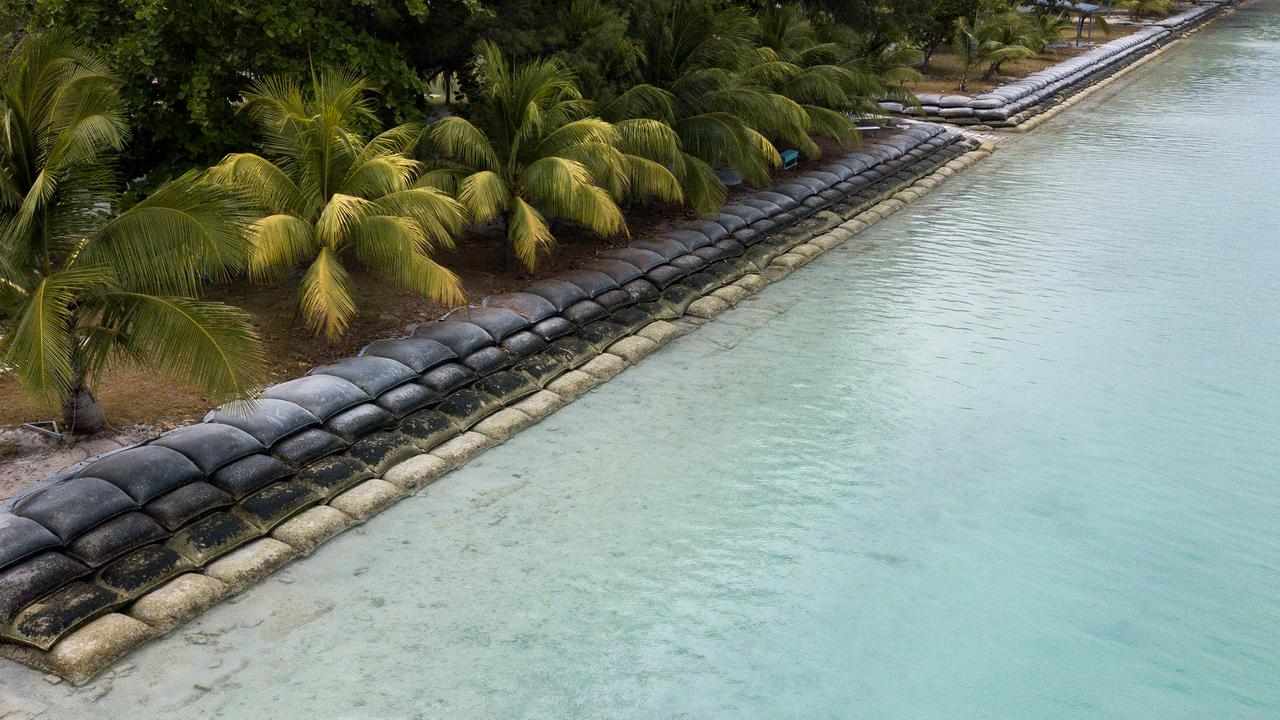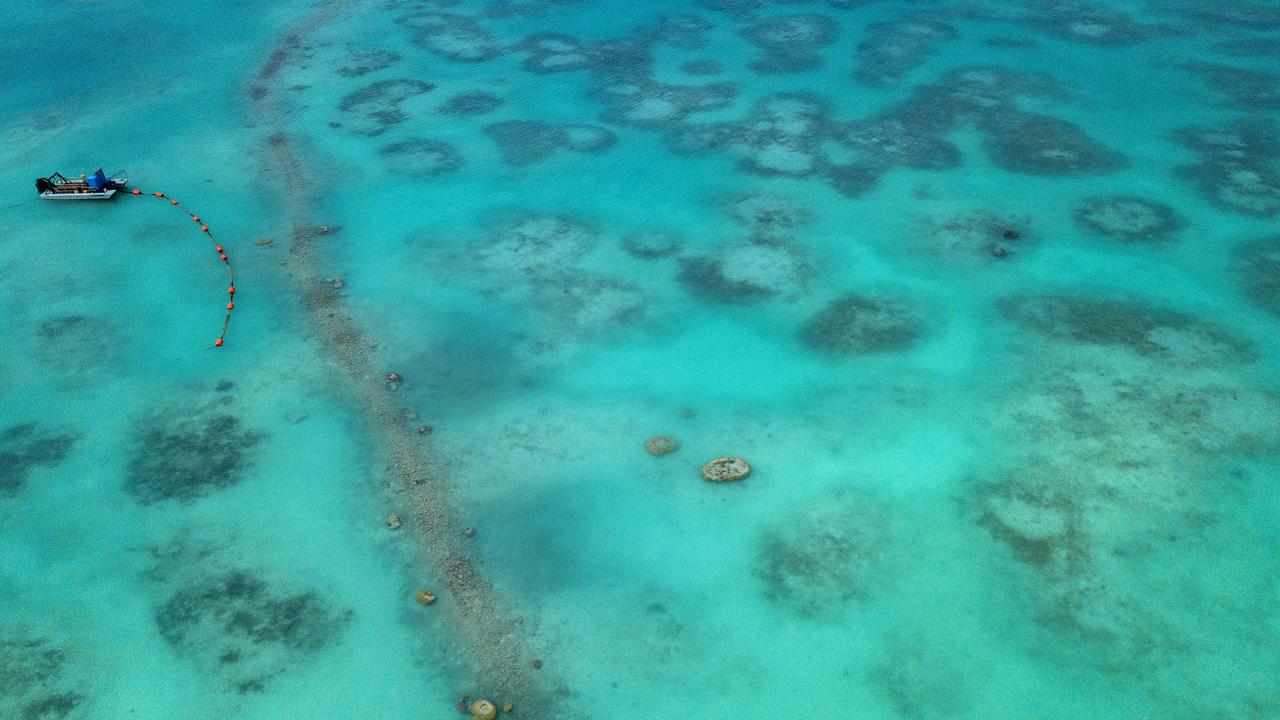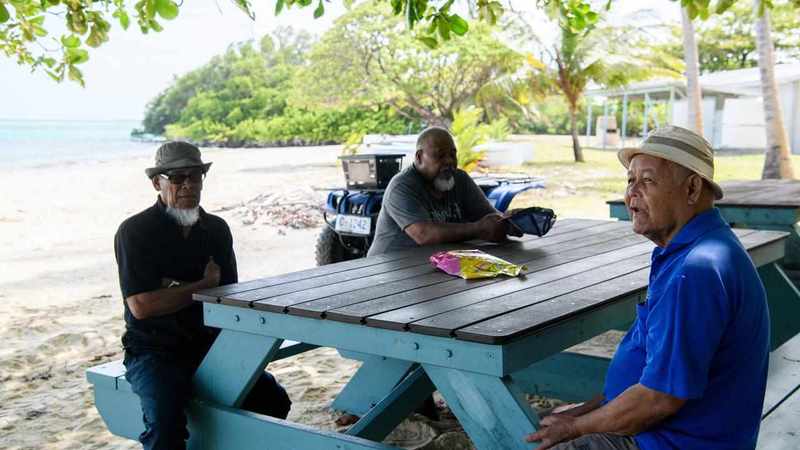Looking out over the translucent waves of the Indian Ocean lapping against the shore, Malay elders of the Cocos Islands fear their paradise could be underwater and their unique culture lost.
Nek Ishahan, 65, has lived through cyclones and torrential floods but when it comes to rising sea levels, he is more philosophical.
"We want to stay but the water is coming," he told AAP in a mixture of English and the islands' unique Malay dialect, where Nek is a kinship term meaning grandparent.
"When Allah says big water coming, like qiyamat (armageddon), then it will happen. When I pray, I say Allah can you bring small water."

About 600 locals in total live on two of the 27 islands that make up Cocos, about 3000km northwest of Perth.
On Home Island, where the Malay community has lived for two centuries, they get around using golf buggies and quad bikes.
They are descendants of slaves who were brought to the island by Scottish colonialist John-Clunies Ross in 1827.
The low-lying islands later became part of Britain's sprawling empire in Southeast Asia and in 1955, the sovereignty of the remote territory was transferred to Australia.
The Clunies-Ross dynasty owned the island, created its own laws and currency.
They paid the slaves in blue and red-coloured coins for arduous labour such as harvesting coconuts and flying to the mainland to work on construction and mining projects.
This practice of stolen wages continued well into the 20th century with the family profiting handsomely.
In 1984, the Cocos Islanders overwhelmingly voted to become part of Australia in a referendum overseen by the United Nations that experts at the time described as "smallest act of self-determination ever conducted".
Preparations are under way by the local council to invite UN representatives and federal government officials to mark the occasion.
The locals are also hoping the international visibility can push Canberra to address their concerns, chief among them being the rising sea levels.
"I want to see concrete slabs and the big sand sucking machines in my life", said Nek Tayeb.
The 66-year-old says Canberra's approach has been dismissive towards their existential fears on the front line of climate change.
"Heavy rains come and it creates problems and our homes are flooded. The sandbags are good but they don’t give us much safety."
This week the islands, which were inundated by floods in 2018, was spared the slow-moving Tropical Cyclone Anggrek.

Frank Mills, Cocos Islands Shire Council CEO, said the islands are effectively "treated like a colonial outpost" by the federal government.
"In this day and age, people deserve better, they deserve to be able to engage with the Commonwealth and the Commonwealth needs to treat them seriously."
Mr Mills is asking for $6 million in disaster mitigation measures, but says he has been rebuffed by government which claims there is a lack of funds.
But he says that is disingenuous at best, because the Defence Department is investing over $500 million in upgrading the airport runway on West Island to accommodate military aircraft.
Construction is slated to start later this year and be completed in two years, according to the department.
Mr Mills said Home Island could cease to exist in a matter of decades .
"With sea levels rising the way they are, there’s a possibility this place could be underwater in 40-50 years ... that would be disastrous," he told AAP.
"Historically the Cocos Malay people were promised a lot of things when they voted to assimilate to Australia but not many of those have ever come to fruition."
AAP sought comment from the Climate Change department and did not receive a response.
But the Regional Development and Local Government department said the government was investing in the islands' future by funding a coastal erosion plan in partnership with the West Australian government that will be completed later this year.
"The coastal hazard risk management and adaptation plan will inform the Australian government’s response to addressing the coastal climate change impacts on Cocos (Keeling) Islands," a department spokesperson said.
The crisis for the islanders is all too real, according to Deakin University academic Alistair Welsh, who worked as an interpreter for the islands' administrator in the early 1990s and has written extensively on the Cocos Malay identity.
"People feel consultation is just a formality and this is coming anyway and they feel disempowered by that," he said.
"The government tends to view it as an incredible strategic asset ... and by implication the people are insignificant," Dr Welsh said, referring to the defence plans.
He noted that although they are Australian citizens, Cocos Islanders are not allowed to own their homes and instead lease it from the federal government through a trust managed by the council.
"There is this kind of comparison with the mainland where people say we don't have the same rights as other Australians."
This AAP article was made possible with the support of the Meta Australian News Fund and The Walkley Foundation.









